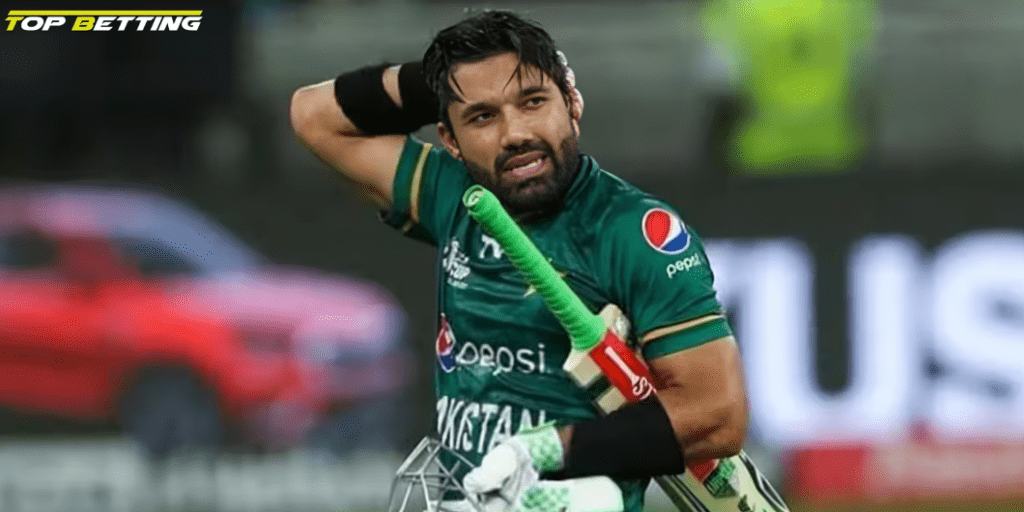
Rizwan comment on Islam ambassador
Understanding the Context of Rizwan’s Comments
In recent times, the role of public figures in representing and promoting religious beliefs has been a topic of much discussion and debate. This is particularly true within the Muslim community, where the concept of being an “ambassador” for Islam has become a point of contention.
The recent comments made by renowned Pakistani cricketer, Mohammad Rizwan, have sparked a heated discussion on this very issue. Rizwan, who is known for his devout religious beliefs, had expressed his desire to be a positive representative of the Islamic faith. In a viral social media post, he stated, “I want to be an ambassador for Islam, to showcase the true teachings of our religion to the world.”
While Mohammad Rizwan’s statement may have been well-intentioned, it did not sit well with a prominent Pakistani actress, who is known for her outspoken and unapologetic nature. In a scathing response, the actress took to her social media platforms to criticize Rizwan’s claim, arguing that it is not fair for one person to assume such a title.
Reactions from the Pakistani Star and Other Public Figures
The actress’s comments quickly gained traction, with her massive following weighing in on the issue. Many of her fans expressed their agreement with her stance, stating that the responsibility of being an “ambassador for Islam” should not be exclusive to a select few individuals. They argued that it is the collective duty of all Muslims to promote the positive aspects of their faith and counter the negative stereotypes that often plague the community.
However, Rizwan’s supporters were quick to defend his statement, arguing that individuals who have a large platform should use it to spread positive messages about their beliefs. They contended that Rizwan, as a prominent public figure, has a responsibility to use his influence to showcase the true teachings of Islam and combat the misconceptions that often surround the religion.
The debate quickly escalated, with other public figures from the Pakistani entertainment and sports industries weighing in on the matter. Some sided with the actress, arguing that the concept of being an “ambassador for Islam” is inherently problematic and can lead to the exclusion of other voices within the community. Others, however, supported Rizwan’s stance, stating that individuals who have a strong moral compass and a deep understanding of their faith should be encouraged to use their platform to promote positive change.
Analysis of the Impact of Rizwan’s Comment on the Muslim Community
The controversy surrounding Rizwan’s comments highlights the ongoing discussions within the Muslim community about representation and the role of public figures in shaping public opinion. On one hand, the actress’s criticism raises valid concerns about the potential for individual actors to claim exclusive ownership over the representation of Islam. This can lead to a sense of exclusion and marginalization among other members of the community, who may feel that their voices and experiences are not being adequately represented.
Moreover, the idea of a single “ambassador for Islam” can be seen as problematic, as it implies a monolithic and homogeneous understanding of the faith. Islam, like any other major religion, is diverse and multifaceted, with a rich tapestry of interpretations, practices, and cultural expressions. By designating one individual as the sole representative of this complex and nuanced tradition, there is a risk of oversimplifying and potentially misrepresenting the true nature of the religion.
On the other hand, Rizwan’s supporters argue that public figures who have a strong moral compass and a deep understanding of their faith should be encouraged to use their platform to promote positive change. They contend that in a world where negative stereotypes and misconceptions about Islam are rampant, having prominent individuals who can articulate the religion’s true teachings and values can be a powerful tool in combating Islamophobia and promoting religious tolerance.
Discussion on the Role of Celebrities as Ambassadors of Islam
The debate surrounding Rizwan’s comments also raises broader questions about the role of celebrities and public figures in representing and promoting religious beliefs. In an age of social media and widespread digital connectivity, the influence of these individuals has become increasingly significant, with their words and actions having the potential to shape public discourse and opinion on a wide range of issues, including religion.
Some argue that celebrities and public figures have a moral obligation to use their platform responsibly and thoughtfully, particularly when it comes to sensitive topics like religion. They contend that these individuals have a unique opportunity to educate, inform, and inspire their followers, and that they should be mindful of the impact their words and actions can have on the communities they represent.
Others, however, argue that the concept of “celebrity ambassadors” for any religion is inherently problematic, as it can lead to the marginalization of other voices and perspectives within the community. They suggest that religious representation and leadership should be decentralized, with a diversity of individuals and organizations contributing to the discourse and shaping the public’s understanding of the faith.
Conclusion and Final Thoughts on the Controversy
The controversy surrounding Rizwan’s comments on being an “ambassador for Islam” highlights the complex and nuanced nature of religious representation and the role of public figures in shaping public discourse on these sensitive issues. While Rizwan’s intentions may have been well-meaning, the Pakistani actress’s criticism raises valid concerns about the potential for individual actors to claim exclusive ownership over the representation of Islam, and the risks of oversimplifying the rich and diverse nature of the faith.

As the debate continues to unfold, it is crucial that all parties involved approach the discussion with a spirit of openness, empathy, and a genuine commitment to understanding. By engaging in constructive dialogue, acknowledging the diversity of perspectives and experiences within the community, and working towards a more inclusive and responsible approach to religious representation, the Muslim community and the public at large can help to promote greater religious tolerance and social cohesion.











